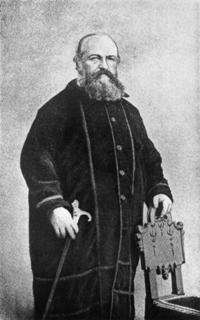A Quote by John Stuart Mill
To do as one would be done by, and to love one's neighbour as oneself, constitute the ideal perfection of utilitarian morality
Quote Topics
Related Quotes
For us Christians, love of neighbour springs from love of God; and it is its most limpid expression. Here one tries to love one's neighbour, but also to allow oneself to be loved by one's neighbour. These two attitudes go together, one cannot be exercised without the other. Printed on the letterhead of the Missionaries of Charity are these words of Jesus: "as you did it to one of the least of these my brethren, you did it to me". Loving God in our brethren and loving our brethren in God.
For the utilitarian, there is a fact of the matter about the good (the general happiness, or whatever conception of the good the utilitarian adopts) and about which actions or moral rules would contribute to maximizing the good. For the rational intuitionist, there are truths about which actions should be done and not done.
There is a religious principle: Love thy neighbour as thyself. But it's also an economic asset. If you've got a neighbour, you've got help, and this implies another limit. If you want to have neighbours, you can't have a limitless growth economy. You have to prefer to have a neighbour rather than to own your neighbour farm.
For the superior morality, of which we hear so much, we too would desire to be thankful: at the same time, it were but blindness to deny that this superior morality is properly rather an inferior criminality, produced not by greater love of Virtue, but by greater perfection of Police; and of that far subtler and stronger Police, called Public Opinion.
A Christian society is not going to arrive until most of us really want it: and we are not going to want it until we become fully Christian. I may repeat "Do as you would be done by" till I am black in the fact, but I cannot really carry it out till I love my neighbour as myself: and I cannot learn to love my neighbour as myself till I learn to love God.








































